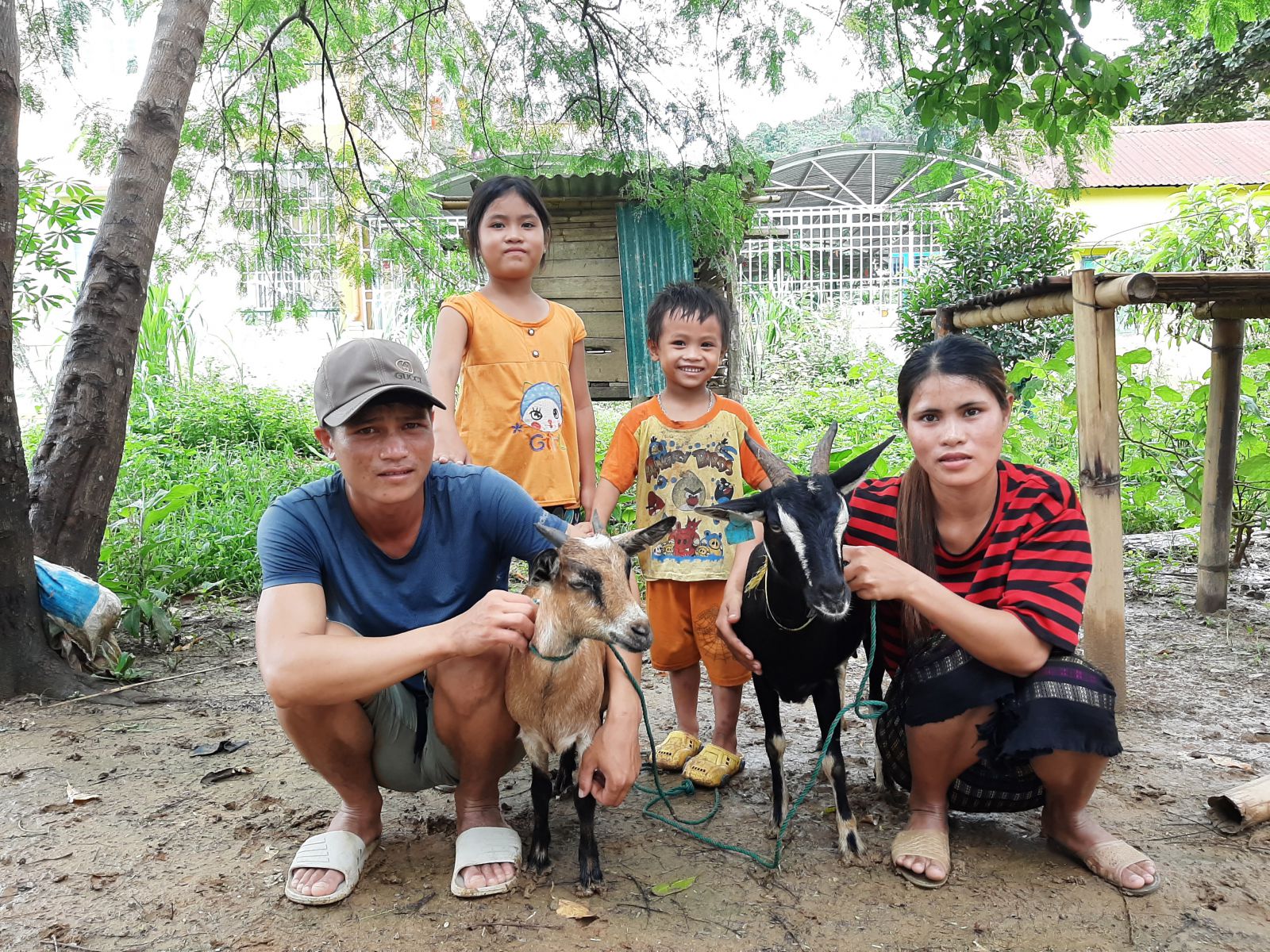A FAMILY'S OVERCOMING STRUGGLES IN COVID-19
“If this pandemic lasts long, I don’t know how to feed my family,” shared Gian, breadwinner of a family of four in Ba Nang commune, Đakông district.
Before the COVID-19 breakout, the father of a nine- and a five-year-old worked as a casual bricklayer. The hiring needs for a manual worker like him was never consistent. In a good month, Gian would be employed between 15 and 20 days. However, COVID-19 and the consequent government’s order of social distancing took away the family’s only source of income. With no savings, the family could no longer afford rice and meat for their daily meals.
“I have to buy food on credit several vendors. I am very worried about the situation we are in,” added Gian’s wife La Hing whose recent accident had broken her ribs and caused the family to incur a one-month inpatient treatment fee for her injury. After the accident, she could only do light work inside the house.
Right after the national lockdown was lifted on April 22, Đakrông Area Program coordinated with district and commune governments to identify 372 most vulnerable households for emergency food aid. Each household received 30 kilograms of rice, four liters of cooking oil, and one carton of instant noodles. This activity provided the much-needed support to 1,961 people including 479 sponsored children, 200 most vulnerable children, and 43 children with disability.
“This assistance will be enough for us to eat in more than a month. It means a lot to our family,” says La Hing. Besides the food aid, her family also received soaps and leaflets on COVID-19 prevention, which is part of the joint effort between World Vision and local authorities in preventing another breakout in the locality.
Gian started looking for jobs after the first breakout was contained. However, jobs were very scarce as social distancing was still in place. With La Hing now being a stay-at-home wife, the family was in need of some capital to buy livestock, with hopes of making a consistent income the husbandry activity.
Responding to that need, Gian and La Hing were first trained in goat husbandry and cage making. In early September, the Area Program gave the family two breeding goats to help them start a livelihood. Now La Hing can support her husband in making ends meet.
“We seek to provide vulnerable households the tools they need for a sustainable livelihood. Besides capital and technical support, the Area Program is also promoting Saving for Transformation model among families like Gian and La Hing’s, so that they will soon be proactive in expanding their husbandry scale and able to increase their income,” explained Đakrông Area Program Manager.


